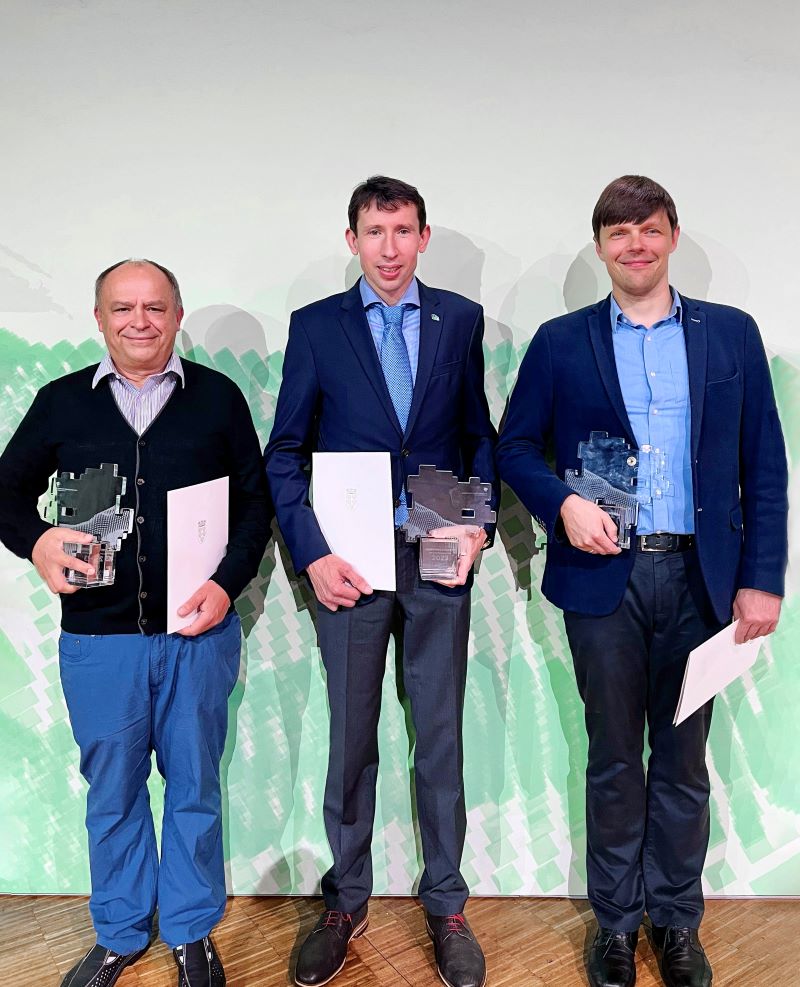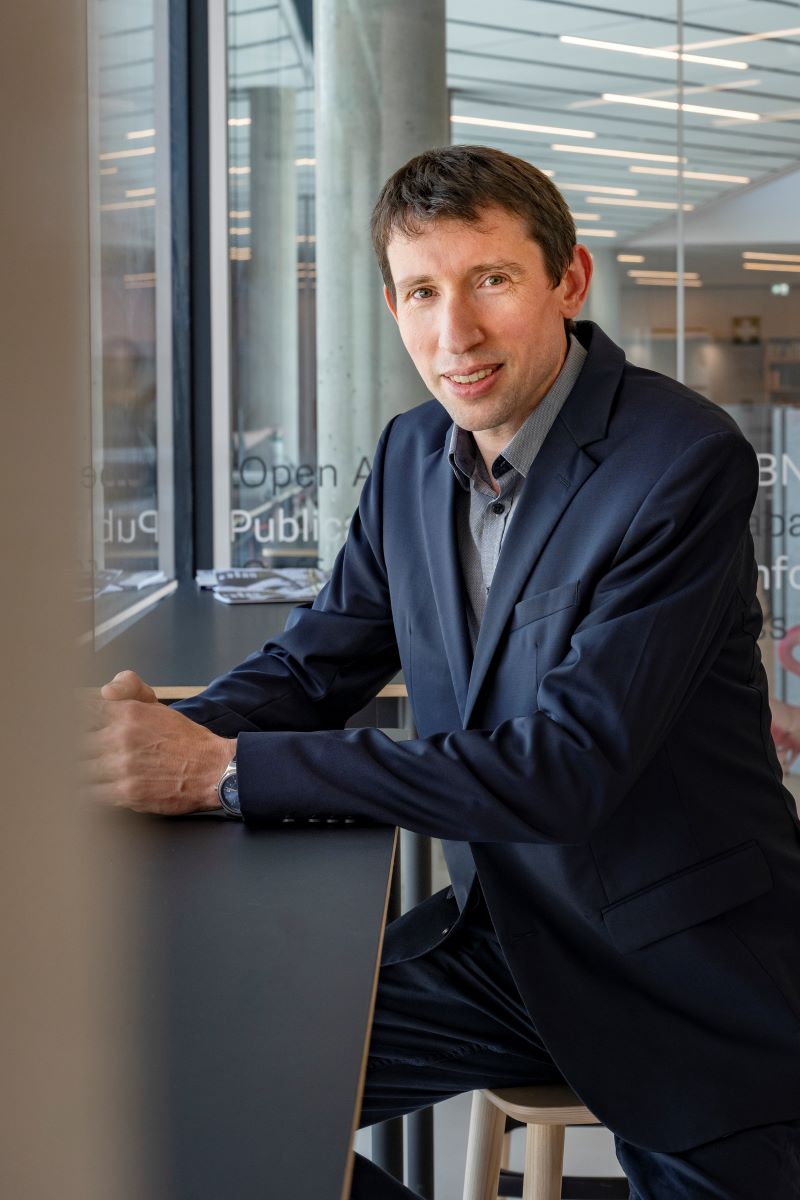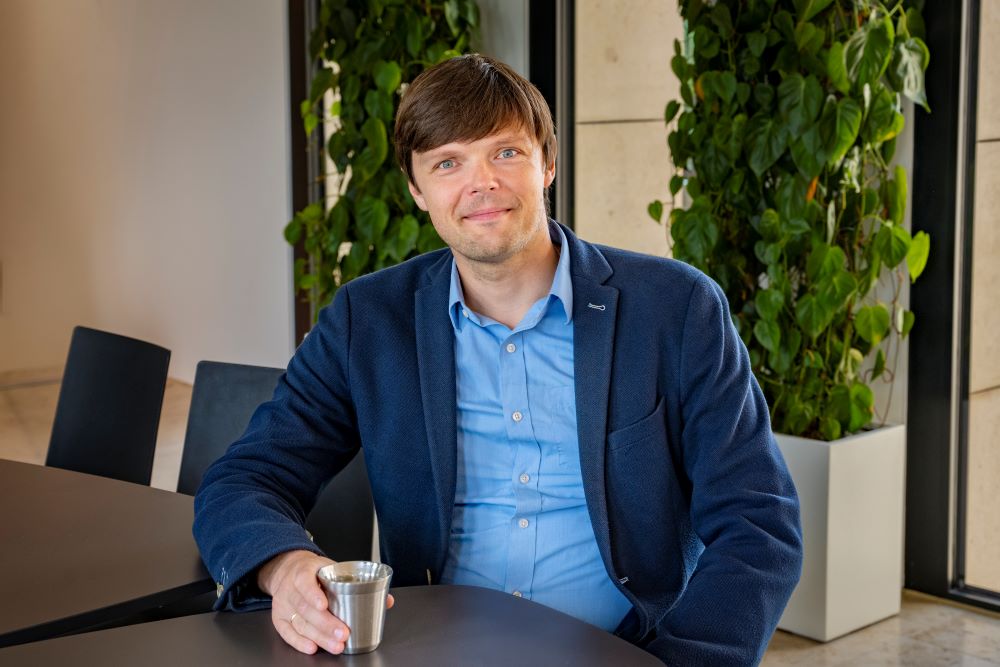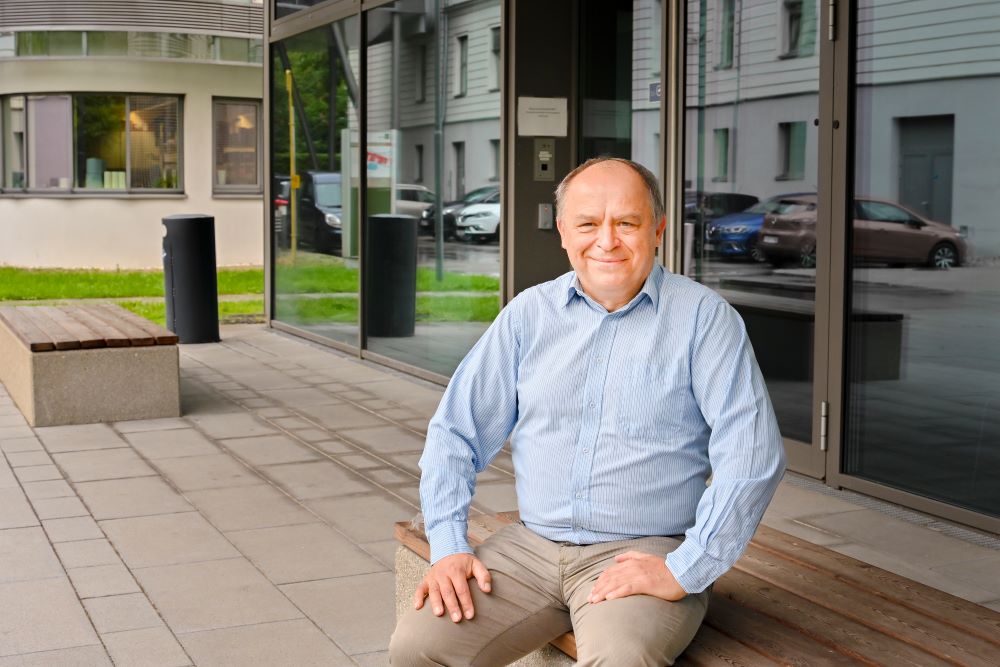October 11, 2023
Lower Austria Gives Three Science Awards to ISTA Scientists
Recognition for research on enzymes, batteries and quantum dynamics
Researchers at the Institute of Science and Technology Austria (ISTA) were particularly successful this year in the Science Awards of the Federal State of Lower Austria. No less than three scientists received a recognition award at the Science Gala on Tuesday, October 10th: chemist Stefan Freunberger for his research on sustainable batteries, biochemist Leonid Sazanov for results on an enzyme of the mitochondrial respiratory chain potentially highly relevant for medicine, and theoretical physicist Maksym Serbyn for work on many-body systems in quantum dynamics with relevance for engineering, computer science and future quantum computers.

Every year, the Federal State of Lower Austria awards honorary and recognition prizes for special scientific achievements. This year, three recognition awards went to the ISTA in Klosterneuburg. The Federal State describes these awards as follows: “The recognition award serves to promote scientists who have already gained professional recognition with their work without demonstrating a complete body of work.”
Batteries of the Future: Stefan Freunberger
Stefan Freunberger leads a research group on “Materials Electrochemistry” at ISTA. He works on developing batteries based on oxygen, sulfur, nitrogen or organic substances. Such batteries could offer advantages in the storage of electric power in the future, especially with regard to the availability of the basic materials, production and recycling. Freunberger has already received an ERC Starting Grant and an ERC Proof of Concept Grant in addition to numerous national and international honors.

“Instead of cobalt, we rely on commonly occurring elements such as carbon, sulfur, oxygen and sodium. These substances exist everywhere on the planet in large quantities—and they can also be fully recycled by living nature,” the chemist explained. “We are currently still researching fundamentals for batteries that use sulfur and oxygen. On the other hand, we are already looking toward applications for batteries that use organic materials made of carbon: we could have prototypes of such batteries in a few years. I’m pleased that the importance of this field has also been recognized by the Lower Austria Science Awards.”
Many-Body Systems: Maksym Serbyn
Maksym Serbyn works at ISTA on the theory of quantum matter and quantum dynamics. To explain fundamental phenomena in quantum physics, it is essential to understand highly complex processes of many-body systems in quantum dynamics. This research could also find applications in engineering and computer science and assist with the implementation of quantum computers and quantum information systems. In addition to the Ludwig Boltzmann Prize from the Austrian Physical Society, Serbyn was able to acquire a prestigious ERC grant for his research.

Commenting on the award from the Federal State of Lower Austria, Serbyn explains, “The work we submitted investigates quantum systems that never reach equilibrium due to quantum many-body scars. Quantum many-body scars are like glitches in the matrix quantum systems.” While most states evolve and spread out, becoming more random and are never coming back, scarred states ‘revisit’ their past, the theoretical physicist explained. “Collaboration with experimental physicists also plays a big role. Our theory guided them to realize scars and do useful things with them.”
Enzymes of the Respiratory Chain: Leonid Sazanov
Leonid Sazanov set up the research group on “Structural Biology of Membrane Protein Complexes” at ISTA. His focus is on enzymes from the mitochondrial respiratory chain, including a highly elaborate protein assembly, complex I. The Sazanov group’s research lays the foundations for the development of drugs to combat various diseases and contributes to a better understanding of their causes. Numerous top-class awards, such as an ERC Advanced Grant, the Keilin Memorial Medal and Lecture, and membership in the Royal Society and the European Molecular Biology Organization, underline the quality of his research.

“In the seminal work submitted for this award, my group elucidated the coupling mechanism between proton translocation and electron transfer in complex I, a question that has occupied the research community for about 50 years. Thus, this work represents a unique tour-de-force in structural biology, and I am glad that this was also recognized by the jury,” said Sazanov.



